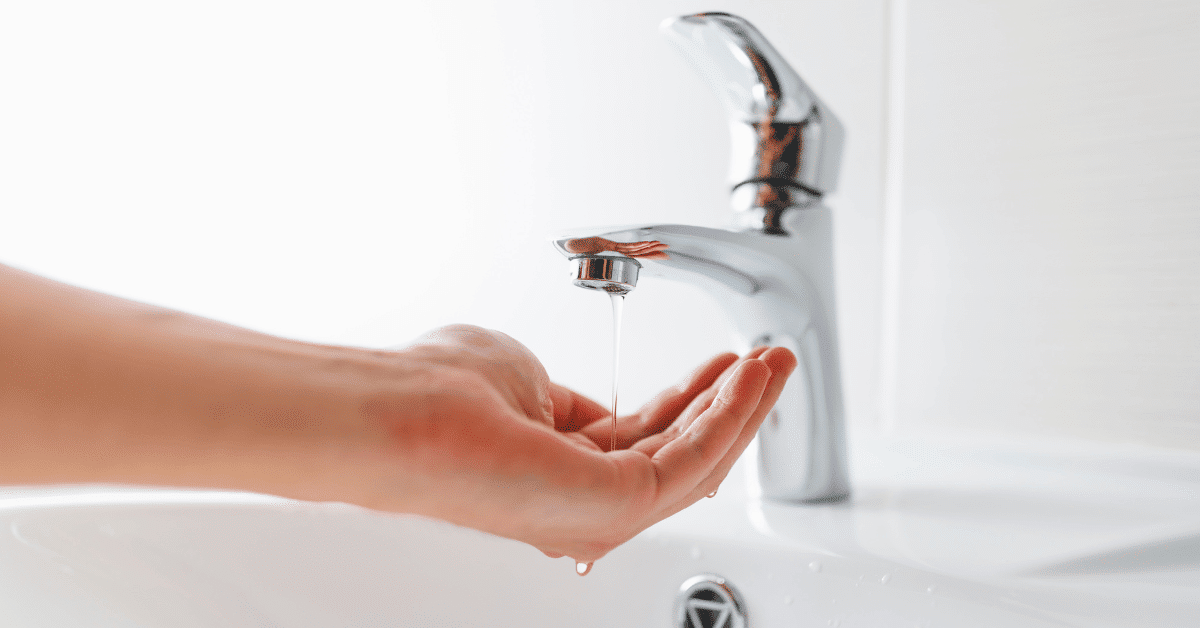ABOUT THE AUTHOR
Max Rose
Max Rose is the owner of Four Seasons Plumbing, a plumbing company in Asheville, North Carolina.

Have you been in the middle of a shower and noticed that the water from the showerhead started flowing slower than usual? Perhaps you’ve seen water from the faucet come out in drips rather than a steady gushing flow. If your water pressure seems lower than usual, it’s essential to understand why it happens, correctly assess the problem, and take steps to get things back to normal.
Any number of factors can cause low water pressure. Here are the most common reasons why your home is experiencing low water pressure:
Over time, mineral deposits and debris can build up inside your pipes, restricting water flow. This is especially common in homes with hard water, which leaves behind mineral deposits that accumulate and cause blockages.
Leaks in your plumbing system can also cause a drop in water pressure. If water is escaping through a leak, there’s less available to flow through your faucets and fixtures. Some leaks are easy to spot, but others might be hidden behind walls or floors.
The pressure regulator is a device that controls the water pressure in your home. If it’s not working correctly, your water pressure could be too low (or too high). A malfunctioning regulator is a common cause of water pressure problems.
Sometimes, the problem lies with the local water supply in your area itself. For example, the water main or a few water lines around town could’ve been damaged during a routine maintenance project. In these cases, the water pressure will temporarily drop until the underlying cause is fixed. If you want to confirm this, talk with your neighbors. If they’re having similar problems, it’s most likely a municipal issue.
Galvanized steel pipes in older residences will corrode over time. This means the water pipes will get narrower and narrower, causing the water flow to slow down, leading to reduced water pressure. Here are some things to watch out for:
Diagnosing low water pressure can be simple enough with these steps:
If you’ve identified the cause of your low water pressure, you may be able to fix it yourself. Here are some DIY solutions:
Sometimes, DIY fixes aren’t enough, and you’ll need to call in a professional. They are trained and are highly equipped to provide emergency plumbing services. Here’s when to consider it:
Persistent Issues: If you’ve tried all the DIY solutions and still have low water pressure, it’s time to call a plumber. They can identify more complicated issues, like major blockages or pipe corrosion, that require expert handling.
Major Leaks: If you’re seeing a lot of water coming out of that leak, or it’s a leak that’s in a really tough place for you to reach, you should contact us right away because those issues need to be handled by a professional. Attempting to fix these on your own can lead to more damage and costly repairs.
Once you’ve resolved your water pressure issues, take these steps to prevent future problems:
Before you experience major problems, we recommend routine checks on your plumbing system, including cleaning aerators and inspecting for leaks. This allows you to catch early signs of a problem and take action before it’s too late.
Water Softener Installation: Mineral build-up inside your water pipes and fixtures will also slow down the water flow, thus reducing low water pressure over time. Using water softeners will help to prevent or at least slow this down.
Low water pressure can be an annoying headache, but if you understand why it happens in the first place, you can take steps to fix it. You can try some DIY techniques to see if they help, but if not, contact us to fix your plumbing problems immediately.
We are known for providing reliable and quality plumbing services. If you are looking for Asheville, NC plumbers, we’re the ones to call. Contact us today to see why we are considered the leader in providing professional plumbing services.
ABOUT THE AUTHOR
Max Rose is the owner of Four Seasons Plumbing, a plumbing company in Asheville, North Carolina.